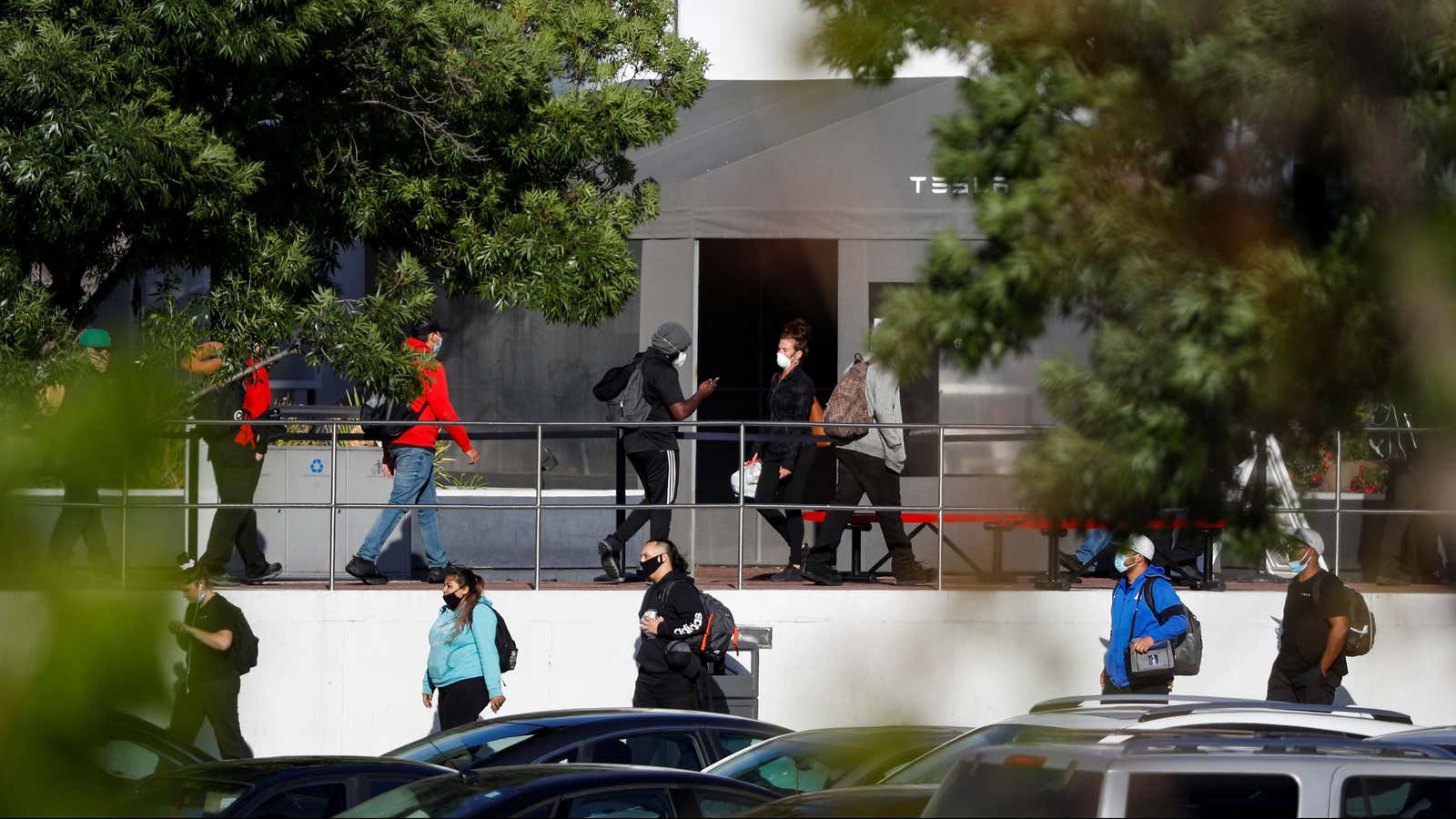On the same week that Tesla CEO Elon Musk was named “person of the year” by both Time magazine and the Financial Times, two of his companies were hit with a slew of new sexual harassment allegations.
Six women filed lawsuits Dec. 14 alleging a culture of sexual harassment at Tesla’s factory in Fremont, California. The same day news of the lawsuits broke, several former SpaceX employees came forward with their experiences of harassment at the private space company that Musk founded. Together they shed new light on how the entrepreneur shapes company culture.
Tesla and SpaceX didn’t immediately respond to a request for comment.
While the CEO has been loathe to take responsibility for harassment allegations at his companies in the past, the most recent claims provide more insight into Musk’s impact on employees’ workplace experiences, even for those who don’t work with him directly.
Former employees say joking behavior enabled harassment
In a recent interview with Time for his person of the year cover story, Musk brushed off criticism of his tweets, saying, “they’re humor that I find funny, but not many other people find funny.”
Musk’s jokes didn’t land with the former Tesla employees suing the company, who allege Musk’s off-the-cuff remarks helped enable harassment. In an interview with the Washington Post, former employee Eden Mederos spoke about the CEO’s long-running joke of dubbing Tesla’s vehicle lineup “S3XY,” an acronym for all the carmaker’s models, once the Model Y car was released.
“When they were rumoring that the Model Y was coming out and it was sexy…around that time everything got worse,” she said, adding the joke prompted her colleagues to start calling everything from door panels to pencil sharpeners sexy. “He would make 69 or 420 jokes,” she said, “which caused the technicians to be even worse.” Jessica Barraza, another former Tesla employee who filed a seperate sexual harassment lawsuit last month said when the CEO uses his highly visible platform to make sexist jokes, it sends a message to other employees, who might think, “he’s tweeting about it, it has to be okay.”
But the entrepreneur’s impact on company culture is as much about Musk’s management style as it is about his tweets, former employees say. In an essay on the blog Lioness published Dec. 14, a former engineer at SpaceX pinned blame directly on Musk for fostering a culture where burnout and misogyny are rampant, and accusations of sexual harassment aren’t addressed by management. “Elon uses engineers as a resource to be mined rather than a team to be led,” former employee Ashley Kosak, who left SpaceX in November, wrote, adding that he constantly shifts the goalposts for employees and doesn’t make them feel their efforts are adequate. Another former SpaceX employee told the Verge that the company is so focused on its mission that it overlooks employee wellness, causing sexual harassment allegations to be swept under the rug.
More allegations coming to light
Tesla has not publicly responded to the allegations that were reported this week, nor has SpaceX. In an email to employees obtained by the Verge, SpaceX president Gwynne Shotwell reminded workers at the company to report harassment to their manager or a human resources representative in a timely manner.
For years, Tesla has asked workers to sign mandatory arbitration agreements in order to prevent allegations of discrimination or product defects from coming to light in public court fights. But the emergence of new firsthand accounts from employees shows the lid is starting to come off regarding workplace culture at the electric vehicle maker and at SpaceX.
